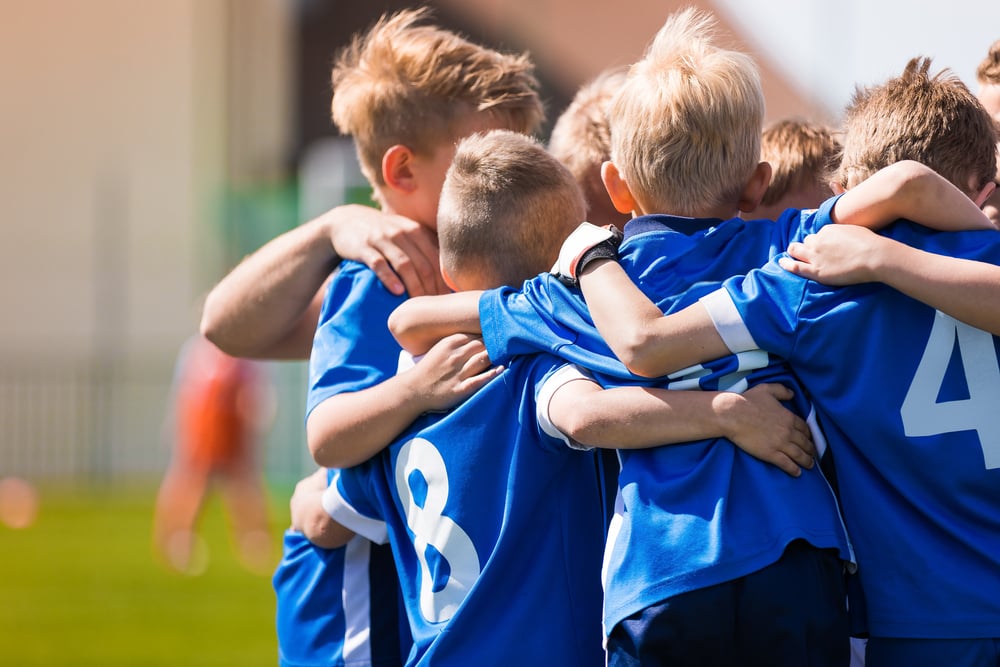With its fun and fast-paced gameplay, rugby is a great sport to keep your little one entertained and moving.
Not to mention, it has a multitude of other benefits, like building strength and fostering a team-player mindset.
If you think that the sport is only for older ones, think again! We’ve got a whole list of classes that cater to young ones of all ages — from toddlers to older kids.
Keep reading to discover the best rugby classes near you!
Rugby classes are good for:
- Motor skills
- Fitness
- Teamwork
- Character development
At what age should a child start playing rugby?
Children can start playing rugby from as young as two years old, but more formal rugby games begin at around six years old.
Starting young has its benefits, as it can set up a good foundation for developing key motor and teamwork skills that can be used later on in life. (1)
Is it safe for kids to play rugby?
Rugby is a safe sport for kids (even toddlers!) as most classes for young ones teach a minimal-contact version of the sport.
Instead of tackling, your child will use touch or tagging instead.
Rugby classes for toddlers
Did you know that you don’t have to wait for your child to reach schooling age to expose your little one to rugby?
Starting at the toddler age group can set a solid foundation for more advanced techniques later on.
Can toddlers play rugby?
Toddlers can definitely play rugby!
At this stage, they may not be playing full matches and will likely need parent participation to help them along.
But it’s a great way to expose them to the basics of the sport, like handling and kicking the ball.
What happens in rugby classes for toddlers?
At this stage, rugby classes for toddlers are all about having fun while gently learning basic rugby skills like throwing, catching and kicking.
You can expect the coach to use lots of colourful cones and soft foam balls to keep things engaging and safe.
Most classes are also based on minimal-contact forms of rugby where kids will tag each other instead of tackling to keep gameplay safe for small ones.
Rugby for toddlers near you
Try Time Kids’ Rugby runs fun classes that mix up traditional drills with innovative games to engage 2- to 8-year-olds. They operate in London and Hertfordshire.
Rugbytots High Barnet & North Finchley has rugby classes for 2- to 7-year-olds. They have a good balance of structure and fun to keep your child hooked on the game.
Rugbytots Highgate Hampstead & Camden for 2- to 7-year-olds focuses on keeping lessons fun and lighthearted through high-energy activities.

Rugby classes for kids
Rugby classes for kids are an absolute blast!
From the moment they step onto the field, they are immersed in a world of fast-paced movements, strategy and teamwork.
What happens in rugby classes for kids?
As your child matures, your child will be progressively challenged to develop advanced rugby techniques.
They’ll learn the ins and outs of the sport, from tackling to passing and game rules.
Proper matches will also start at this age, which can be a great way to develop a competitive spirit!
Is rugby a good sport for kids?
Rugby is a good sport for kids as it helps develop fitness along with valuable life skills — like leadership, communication and sportsmanship.
When it comes down to it, rugby classes for kids are all about having fun, making friends and learning to love the game!
Rugby classes for kids near you
Try Time Kids’ Rugby sets a good foundation for your child’s rugby skills through a mix of lighthearted games and drills.
They have classes in London and Hertfordshire.
Rugbytots High Barnet & North Finchley for kids covers basic rugby skills in an encouraging environment to build confidence and self-esteem.
Rugbytots Highgate Hampstead & Camden has high-energy classes for kids with a good mix of structure and fun.
Touch rugby classes
How do you play touch rugby?
Touch rugby is an exciting variation of the classic game that’s perfect for players of all skill levels while reducing the risk of contact injury.
Most of the rules are generally the same, but there are some slight differences in how you can get the ball from your opponent.
What is the difference between rugby and touch rugby?
The main difference in touch rugby is that instead of tackling, players attempt to touch their opponents on any part of the body with both hands.
Why is touch rugby good?
Touch rugby is good because it’s a non-contact version of rugby.
This means you can worry less about the injuries associated with tackling.
And just like the classic version of the game, you can still benefit from the same health and mental benefits, like getting a good workout while working with your team.
Touch rugby classes near you
RUGGERBUGS in London, Hertfordshire and Essex run classes based on non-contact, touch rugby to minimise the risk of injury for little ones between 1-6 years.

Best rugby classes in London
RUGGERBUGS has relaxed, non-competitive tag rugby classes that are minimal contact to minimise injury risk.
Try Time Kids’ Rugby offers fun rugby classes with their own innovative games to help your kids fall in love with the amazing sport.
FAQs about Rugby classes
Why is rugby good for kids?
Rugby is a cardiac-intensive, strength-based sport that’s great for kids’ physical development.
But it’s not just about building muscles — rugby also helps with hand-eye coordination, balance and agility.
Don’t forget that it can also help with character building as your child learns the value of teamwork, sportsmanship and perseverance.
Can a four-year-old play rugby?
Yes! There are rugby classes available to four-year-olds that will teach rugby fundamentals like passing and catching.
Do kids get scouted at rugby?
Yes. Kids can get scouted when playing rugby in their community or school clubs.
These players have the chance to attend prestigious academies to take their skills to the next level. (2)
At what age do kids start contact in rugby?
Kids often start playing contact rugby at the age of 7-8 years old, but it is common for touch rugby to be played by children aged eight years and up.
By the time children reach the age of 15, most of them will be playing full-contact rugby. (3)
What is the difference between touch and contact rugby?
When playing touch rugby, participants do not physically tackle each other.
Rather, they are required to touch either the ball or the clothing or hair of their opponents when they are in possession.
Once a touch has been made, the player in possession places the ball on the ground at the point of contact.
In contact rugby, on the other hand, the players physically bring the ball carrier to the ground by holding them firmly below the waist. (4)

